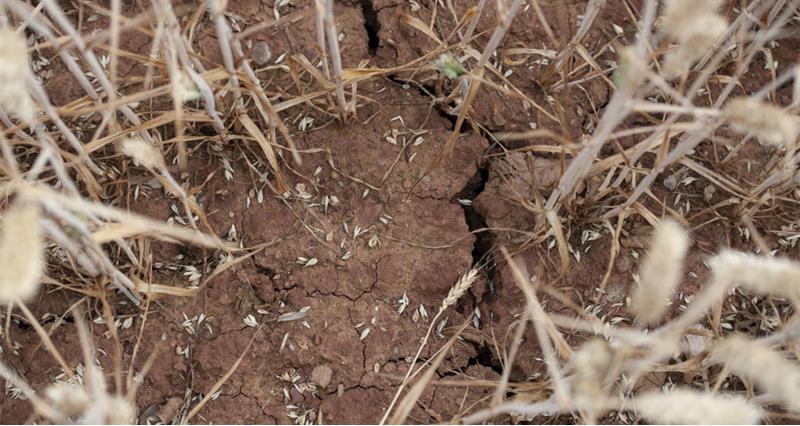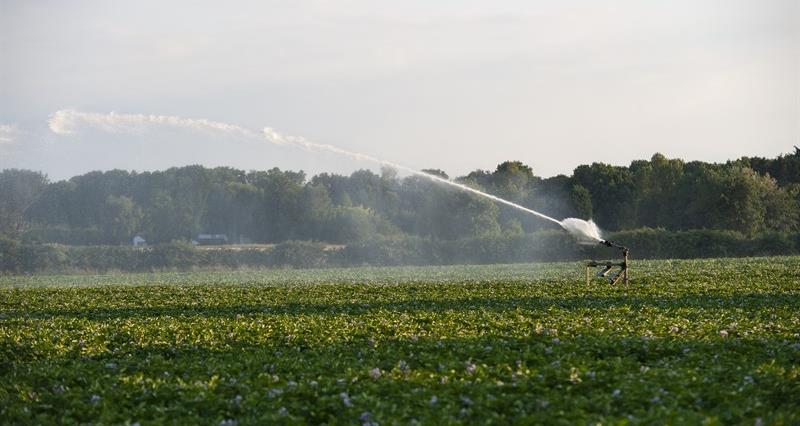This meeting was attended by Terry Jones (Director General, NFU) and Kelly Hewson-Fisher (National Water Resources Specialist, NFU).
Minister Pow emphasised the need to ‘key an eye on the situation’ and referred to the Farm to Fork Summit announcements with a need for farmers to have a resilient water supply.
Read: Prime Minister's letter to farmers ahead of food summit
Current drought situation
At present, two of the 14 areas remain in drought situation. These are:
- Devon & Cornwall
- East Anglia (North Norfolk, North West Norfolk & Broadlands)
The drought status means that the EA (Environment Agency) and water companies will continue implementing the stages of their pre-agreed drought plans to manage the impacts.
These plans follow local factors including reservoir levels, demand and forecasts, and may lead to precautionary actions such as TUB's (Temporary Use Bans).
South West Water has TUB’s in place for Cornwall and parts of North Devon and West Devon. South East Water will introduce TUB’s for Kent and Sussex from 26 June 2023. The move from drought status to recovery will commence when the EA is satisfied the data shows that the position within those regions is improving.
Whilst March 2023 was recorded as the wettest March in England for 40 years, it didn’t recover some water bodies as well as others. Groundwater systems are now in their receding phase and some surface waters are seeing flows decline. This is why some areas still remain in drought status.
More information on the current water situation can be found at:
Continuing to work with water companies
The EA is liaising with water companies to share information on water availability, operational activities and to understand any emerging concerns.
In 2022, a National Drought Group sub group was established as a forum for water companies to review their actions and report to the EA. This group feeds into the main National Drought Group and enables discussions to look at the impact on the agricultural sector.
Water Resources East has facilitated an East Anglia Drought Group. Two meetings have taken place to date, which focus on sectors and industries working together to explore solution options across sectors. A draft paper is being reviewed investigating further opportunities for water companies to work with the agricultural sector.
Working with abstractors
�ʼһ���continues to co-chair the National Drought Group sub group for the Agri–Environment sectors. The group works with the EA to ensure challenges are understood and solutions developed where possible.
The EA continues to want to work with farmers, businesses, and other abstractors to manage water availability and ensure that they get the water they need to be resilient whilst maintaining protection of the environment.
The EA is urging abstractors to review their abstraction licences to ensure that these continue to meet abstractors needs for long term resilience.
Where abstractors do not have long term resilience then they should look to implement alternative solutions such as: review cropping plans, water efficiency, developing new sustainable sources of water or providing winter storage.
There may also be scope for collaborating with others to share licensed volumes, if actions taken individually are insufficient to provide resilience.
The EA authorised a number of LEPs (local enforcement positions) during the 2022 drought.
There are a response to exceptional events and abstractors should not plan to rely on LEPs to provide dry weather resilience as there is no guarantee they will be available.
Updates on the NFU's asks
Short term asks
- The sector needs clear and timely communication and engagement from the EA. As we progress through the irrigation season, the sector needs to ensure access to water.
- Update: A webinar was held on Friday 30th June for East Anglia members to hear a water situation update from the EA. Members can watch this at: East Anglia water situation meeting
Medium term asks
- Funding to be provided for facilitation of abstractor groups nationally to bring abstractors together in catchments where abstraction takes place. This will support the work of the Water Resources Regional Groups.
- Funding to be provided to support the creation of an Agriculture Water Resources Management Plan and Drought Plan to enable the collaboration with the National Framework and Water Resources Management Planning.
- Update: Defra committed its support through its Plan for Water2 and the Farm to Fork Summit announcements for the above asks.
- Funding to be provided to support agriculture supply and demand forecasts in each Water Resource Regional Group area.
- Update: It is the intention of the EA to extend work currently carried out in East Anglia, to cover England.
- Further funding to promote more on farm storage reservoirs e.g. future rounds under ATP. Defra, RPA, EA and Local Planning Authorities need to work together to provide alignment of the process to support grant schemes for on farm storage resources.
- Update: A second round has been confirmed with £10 million secured.
- Funding to be provided for the agricultural sector to have direct access to Strategic Reservoir Option water i.e. South Lincolnshire and Fens Reservoir.
- A food impact assessment needs to be undertaken when changes are made to abstraction licences/licencing. Defra’s recently published ‘Our integrated plan for delivering clean and plentiful water’ (the Plan) states water ‘is vital for food security’ and commits to, ‘at a minimum, maintain the current level of food we produce domestically’. The current assessment process undertaken by the EA must also include a food impact assessment.
Long term asks
- Support and creation of a sustainable mechanism of funding for the agricultural sector to allow future participation with the National Framework and the multi sector water resources regional planning process. and the research it requires.
- Update: The EA is undertaking a scoping project ahead of the second round of the National Framework (2025) which will look at the funding required for non-public water supplies to be fully integrated into the water resources regional group process.
- Defra, the EA and the agriculture sector need to work together to review the requirements for National water infrastructure for the agriculture sector and multi sector opportunities in line with the Agriculture Water Resources Management Plan.

